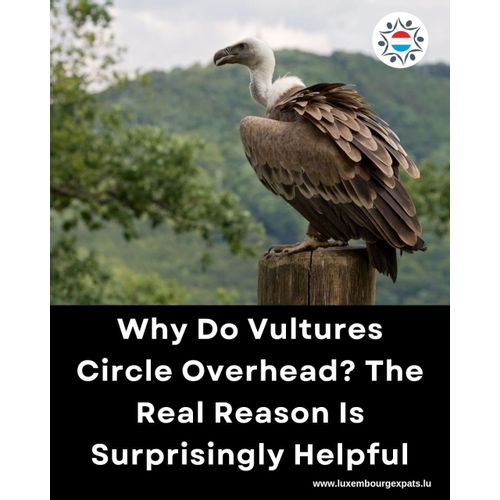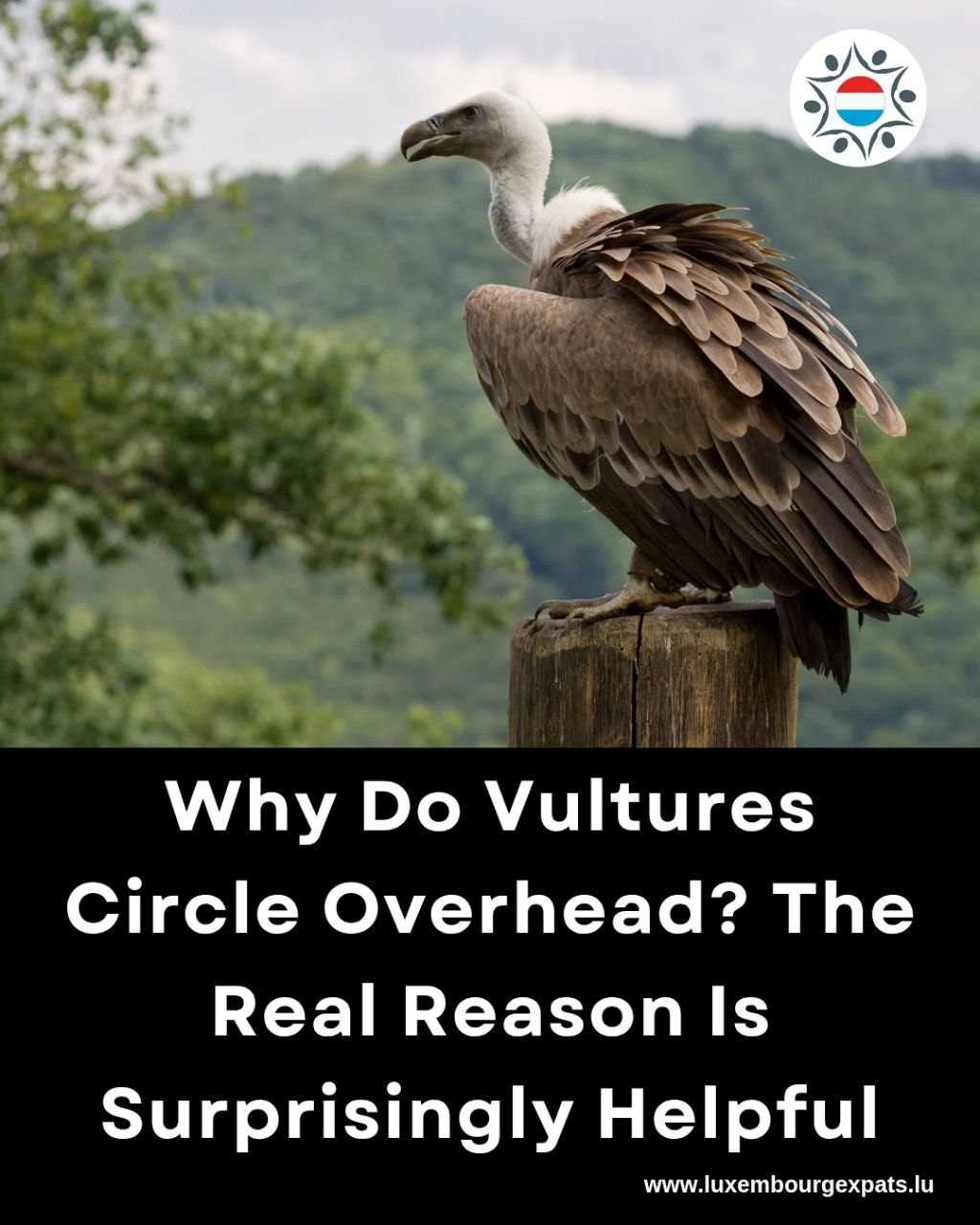Why Do Vultures Circle Overhead? The Real Reason Is Surprisingly Helpful
LuxembourgPosted on 25 November 2025 by TeamVultures often get an unfair and spooky reputation. Popular culture paints them as grim messengers of death, patiently waiting for a weakened creature — or person — to take their final breath. But according to experts, this idea couldn’t be further from the truth.
“Circling vultures aren’t hovering over the dying,” said Chris McClure from The Peregrine Fund, who leads the Global Raptor Impact Network. “I’ve never heard of vultures following a dying human, and honestly, there aren’t exactly many opportunities for that.”So what are they really doing up there?
Riding Invisible Highways in the Sky
Vultures are masters of soaring flight. They rely on thermals — rising columns of warm air created when sunlight heats the ground unevenly. This air lifts upward like a swirling, invisible elevator. Near the ground these thermals are small, so vultures turn in tight circles. Higher up, the air columns widen, allowing the birds to glide in larger loops with almost no effort.
This energy-saving method lets vultures travel long distances while scanning the landscape for carrion — already dead animals — which is their primary food source. Some species, like turkey vultures, even have a remarkable sense of smell and can detect gases released when a body begins to decay.
Not Waiting — Just Checking
Once vultures locate a potential meal, they may keep circling to size up the situation:
-Is the animal truly dead?
-Are predators nearby?
-Has the carcass been opened yet for easier feeding?
-Only when it seems safe do they swoop in.
Nature’s Clean-Up Crew
Despite another common misconception, vultures are not disease spreaders. In fact, the opposite is true. Their stomachs contain incredibly powerful acids and bacteria capable of destroying dangerous pathogens like anthrax, cholera, rabies and salmonella. By devouring dead animals that might otherwise rot and contaminate the environment, vultures help stop disease outbreaks before they start.
“They’re essential for a healthy ecosystem,” McClure said. “Vultures eat an amazing amount of carrion.”
When Vultures Disappear — Disaster Follows
A powerful example of their importance comes from India. For decades vultures were abundant, until a veterinary drug called diclofenac poisoned them when they fed on treated livestock carcasses. Their population collapsed during the 1990s — and the consequences were severe.
Without vultures cleaning up dead animals, disease spread unchecked. Between 2000 and 2005, over half a million people died from infections like rabies that vultures once helped control. The crisis proved just how vital these birds are to public health.
Guardians of Wildlife, Too
Many vultures today carry GPS tags that help conservationists track their movements. In regions like Africa, clusters of vultures around a carcass can alert authorities to potential poaching incidents — sometimes even before rangers reach the scene.These watchful birds are not just scavengers — they’re frontline defenders for both nature and people.
Next time you spot vultures circling in the sky, don’t take it as a dark omen. Take it as a good sign. They’re cleaning up the planet, protecting us from disease, and even helping fight wildlife crime — all while gliding gracefully on the wind.
Vultures aren’t waiting for death…
They’re working to keep life thriving.
Read More : Why do vultures circle? | Live Science
Join the community of your own - #1 home-grown LuxExpats app
SignUp Free : luxembourgexpats.lu
I am your contact
Team
Chat









